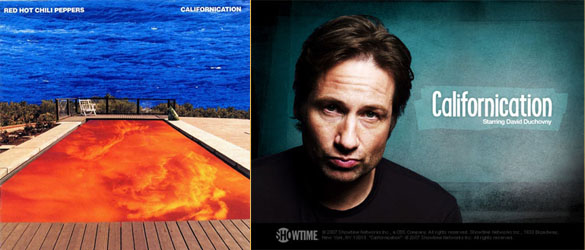For those who don’t know, “Californication” is the name of both (i) a 1999 album, song and music video by the Red Hot Chili Peppers, and (ii) a Showtime series now in its fifth season staring David Duchovny as novelist Hank Moody.
When the Showtime series appeared on the scene in 2007, the Red Hot Chili Peppers took umbrage with the chosen name for the show (it didn’t help that the show also included other Peppers-related terms, such as “Dani California” as a nickname of a character), and filed suit against the network for trademark infringement and other related claims. At the time, the Chili Peppers had not applied to register any trademarks for “Californication”–though they certainly could claim fairly broad common law rights in the name.
Despite the fact that the case became an apparent non-issue (five years later the show is still on the air under its original name), the dispute still sheds light on a few important points for business owners and entrepreneurs:
1. Protect Your Trademarks
Had the Chili Peppers filed for registration of their trademark, the dispute may well have never arisen. While as a general rule titles cannot be protected as trademarks, there are exceptions that may have allowed for registration in this case. If the Chili Peppers had applied to register “Californication” in connection with entertainment services, Showtime may well have chosen a different name from the outset. While one could presume that the Chili Peppers didn’t register “Californication” because they were treating it as a title and not as an identifier of source (the definition of a trademark), this assumption is countered by the Chili Peppers’ own later lawsuit against Showtime.
So, the lesson is, if you think you have a trademark, it is best to protect it early so that you avoid costly disputes and potential market confusion down the road.
2. If You Use Terms Associated with Third Parties, be Prepared to Face the Consequences
Was Showtime a little brazen in choosing a title for its series (which it did apply to register with the USPTO) that was so closely associated with a pop culture icon? I’m actually not so sure. In this case, all indications suggest that the Chili Peppers are not holding onto “Californication” as a trademark, but rather are treating it purely as the title of their 1999 work. I have little doubt that Showtime’s legal team performed a thorough investigation and analysis, and then made an informed decision to go ahead with the name for the show.
That said, we see what happened, and it is the realities of living in a business environment that we need to keep in mind. You might get away with it, but do you really want to spend potentially years in litigation with the identity of your company hanging in the balance? Maybe so (if it’s the absolute perfect brand name for your concept and you have the bankroll to finance a team of lawyers), but for most small business owners I am going to guess probably not.
This article is provided for informational purposes only, and does not constitute legal advice.







